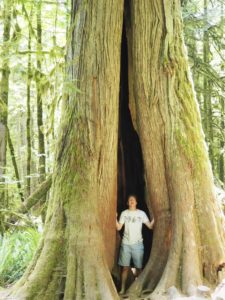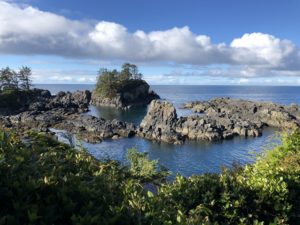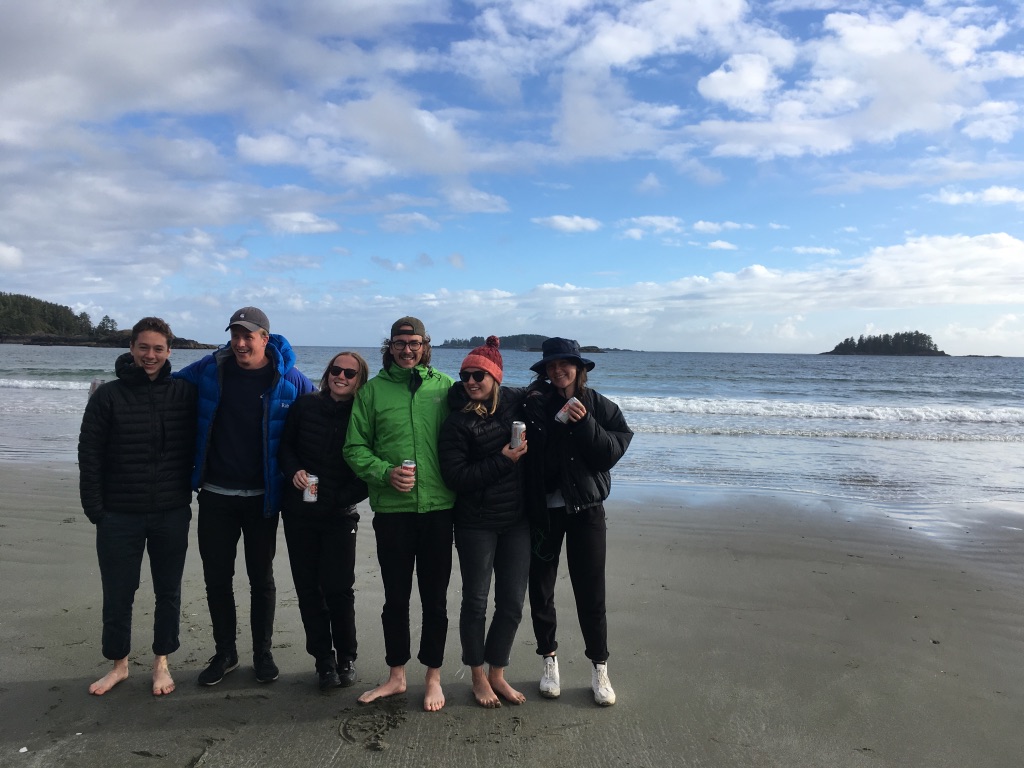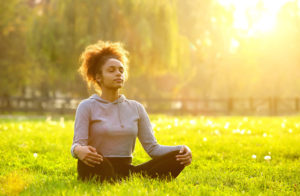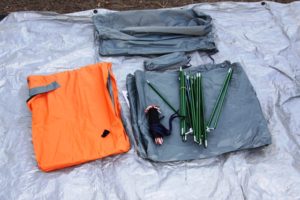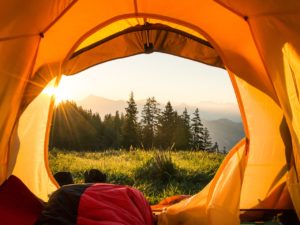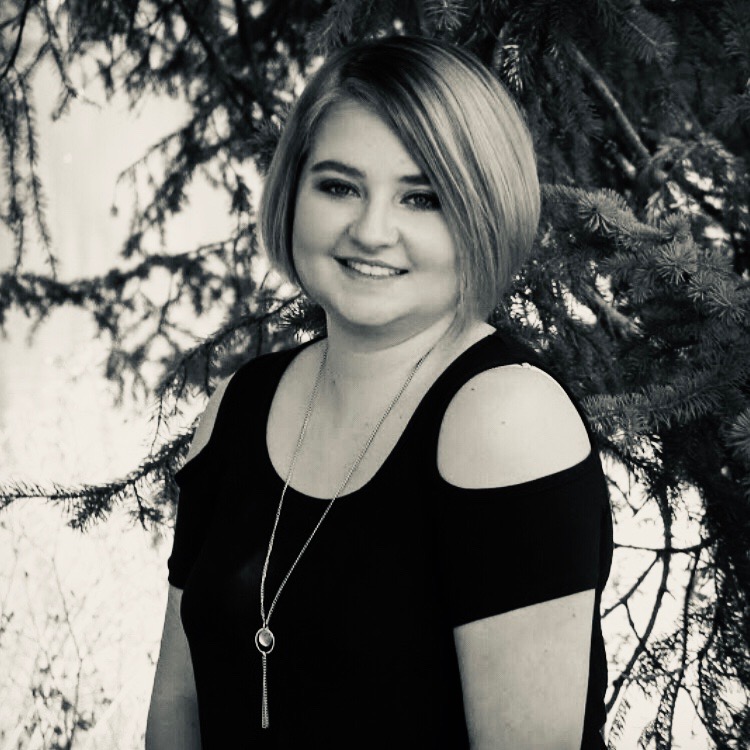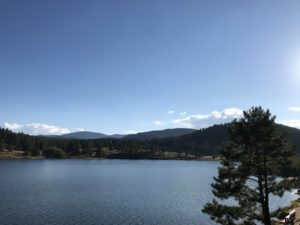I think of Appalachia every day.
The way when you wake up at sunrise, you find your head in the clouds, literally. High up in the mountains the fog is so thick you can barely make out the expression on your neighbor’s face. I was 15 the first time I found myself there. Somewhere in the middle of Kentucky, my heart breaks for the fact that I can’t remember that quaint little town’s name. We slept on the floor of an elementary school, showered in makeshift huts right beside the playground. Showering didn’t quite seem to matter, however, because with that kind of humidity, you were always wet. And hot.
Over the summer of 2017, my university required the entire freshman class to read J.D. Vance’s Hillbilly Elegy. The book is toted as an “international bestseller”, telling the stories of class decline in the Appalachian region. To many Americans, the United States is viewed as “the greatest country in the world”. I think Hillbilly Elegywas able to shatter that for many. To my surprise, today, November 11th, 2020 is the release date of the Hillbilly Elegymovie. It seemed that my incoming freshman class at the University of Denver in2 017 despised the book, leaving me to wonder how well the film will do.
I find myself in an odd space. I am a 21-year-old lesbian. I am all things progressive. I have recently come to the conclusion that there is nothing more for me to learn from old, straight, white men– I have already heard their stories. To put it simply, their stories were the only stories I heard throughout my K-12 education. It was not until I got to college that I was introduced to literature of Black women, films by young immigrants, and most critical to my identity, the stories of other queer folks. So, when it comes to the story and struggles of, once again, a straight white man, I roll my eyes in disgust. And perhaps rightfully so—might the stories of the Black and queer folks in the same situation hold a unique perspective, tell stories of struggle much deeper than that of Mr. Vance? Despite all my qualms, I am in love with this story.
In the summer of 2017, I held my university issued copy of Hillbilly Elegy as I drove in a big white van down to Appalachia for what may have been the last time. I had never read a book that told stories of places I had been. Though I despise mission trips now, I was on one. I was traveling with my church to help rebuild the houses—no– trailer homes of the Appalachian residents. I was traveling to meet, stay with and “serve” the same people Vance detailed in his book.
I remember everything about the first man whose home I helped renovate in 2014. His name was Benny. He was an old, frail man. His hands shook while he rolled his tobacco cigarettes. His skeleton like figure was evidence of the cancer eating him away from the inside out. I remember everything about his home, too. A new front porch built by the mission group the week there before us. A kitchen and living room combination, one bedroom just large enough to fit one full sized bed, and a bathroom the size of an average public restroom stall. The house smelled like piss. His two dogs were allowed to relieve themselves freely as he no longer had the energy to let them out. He chatted with us all day while we worked on his home. I adored him, his stories of growing up in the forest, battling through a meth addiction, feeling proud of his children for finding jobs out of their rundown town, despite the fact he despised them for leaving him to rot. I doubt he is alive today.
The following year there was Beulah, the sweetest woman I have ever met. She had three children, one biological daughter, and two foster children of her brothers. She was given custody after her brother’s meth addiction spiraled out of control. The baby of the bunch, and prized only boy, was two years old. His age left me surprised as the toddler acted like an infant. Beulah explained he was behind developmentally because, quite literally, he was fed Mountain Dew out of a bottle for the first year of his life. I think of him often.
On one particularly brutal day of work, I found myself wondering off into the woods of the family’s back yard on a break. Out in the woods, they had their three dogs chained up. I would often walk to them to relieve my own stress. The repetitive work that construction demands can become somewhat meditative, leaving me to mull over the meanings of my life. I was struggling with my faith, I was falling in love with my straight best friend who was working on the house only a few yards away from me, I felt isolated in my feelings and identity. And then, out there in the woods, I turned my head to see that little boy extending out a large branch towards me. He was ushering me to follow him, so I did. He gave me what I assumed was a tour of their expansive yard. He showed me the bugs, some kittens who lived under the foundation of their home. He didn’t say a word to me. Yet, he was the first person I processed all of those heavy feelings with. Today, I often think about the political beliefs he is being raised with that would teach him to hate me, yet, the uninhibited kindness of his childhood was exactly what I needed to begin accept the person I am.
The next summer held a couple with two children. Though the parents were white, and so was their daughter, their son was Black. He was the only Black person I ever saw in my four summers in Appalachia. They didn’t mention his race a single time. There was never an acknowledgement toward the fact that he was perhaps adopted or from a different mother or father. It was hard to distinguish if this was an act of fierce acceptance of their child or a shame so deep that left race unspeakable. Their trailer did tout a confederate flag, after all. Nearly all the homes did.
During this trip, I proved useless for construction work. We had too many hands on deck, leaving many of us to get creative with ways to spend our time. So I spent my week playing with this young Black boy and chatting with his mother. Only two conversations remain with me. The first, with the mother. She spent nearly an hour explaining to me how to be submissive to my husband and how to make a good wife. She brought out her Bible, pages bookmarked to explain to me how Jesus would want me to serve my husband. Though I am a fierce feminist with no intention to marry a man, I smiled and engaged with her. I didn’t know what else to do. All I was there for was the human connection, anyway. The other conversation was at the very end of the week as the mother had to pry the little boy off of me as he begged me not to leave. He didn’t stop crying as our big white van rolled away.
And that’s the fucked-up part of mission trips. You go build these relationships with people who are hurting and then you promptly abandon them. You allow a bunch of teenagers to build a front porch from scratch and then don’t check in to make sure you have actually improved their home and well-being. You put in a week’s worth of work and get to leave feeling all warm and fuzzy, knowing you did something good in Jesus’s name. J. D. Vance will tell you that, despite these silly mission trips and “the work of God”, the lives of Appalachians are not, in fact, improving. Survival comes down to getting out or die trying.
With all this in mind, I still hold dearly to the fact that every person I have ever met there adores Appalachia. Nothing compares growing up in the mountains, free-range chickens and free-range children wandering one of the most gorgeous places on Earth. When that fog rolls in and the sun shines its first morning light, the world looks like it’s on fire. To this day those sunrises are the closest I have come to God.
It is estimated that 3 million people visit Appalachia each year. Not for these sweet people in run down trailer homes, but to hike the Appalachian trail. As I constantly surround myself by outdoor adventurers, I have found that a handful of my friends and colleges share the dream of traveling East to hike the longest known footpath in the world. I believe it’s ironic that these privileged, liberal, white hikers will travel halfway across the country to experience this marvel and not think twice about the people who live there. My friends are not the poor, white, working class, the ex-miners, the Trump lovers of Appalachia. In many ways, they are quite the opposite. Yet, this Appalachian culture has no weight on their decision to travel there. The Appalachian trail seems uniquely positioned for its tourists with its culture contributing zero percent of the draw, leaving the whole hundred to the landscape itself.
And my god are those mountains gorgeous. I understand why my peers long to travel there with no desire to interact with the residents who hate nearly everything we are. Yet, I have fallen deeply in love with so many of those folks. It has been years since I have been to Appalachia and I still don’t have a clue of what to make of this. We are a country so deeply divided, with liberals raised with pure bred golden retrievers and republicans raised on Mountain Dew. However, I suppose the reverse is probably true as well. How will the hikers of the Appalachian trail and the residence of Appalachia find common ground that is not solely geological? Once again, I am clueless, but I hope we do.


